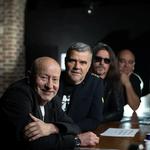
Prljavo Kazalište Tour Dates and Upcoming Concerts
Welcome to the official artist page for Prljavo Kazalište – your premier destination for
the latest concert tickets, tour announcements, and exclusive shows near you. Dive into
the music, explore the artist’s reviews and photos, and never miss another concert
moment. Stay updated, stay connected, and be the first to grab tickets for an
unforgettable musical experience.
On tour
Yes
Followers
19,757
Category
Power Pop, Rock
Concerts
See all upcoming events on Bandsintown and get tickets.
About Prljavo Kazalište
In 1977. Jasenko Houra and his crew from Dubrava (in Zagreb) formed a rock & roll band which was named after an episode from a comic “Alan Ford”.
The original members were: Zoran Cvetković – Zok (solo guitar), Nino Hrastek (bass), Tihomir Fileš (drums), Davorin Bogović (vocal) and, of course, Jasenko Houra (rhytm guitar).
Except for Houra, all the other members were playing in a band called “Ciferšlus”(Zipper) but when Houra came they changed the name to “Prljavo Kazalište” (Dirty Theater) not knowing that ten years later they would become the greatest Croatian band ever.
The first official single came out in 1978. under the label “Jugoton” and was named “Televizori”. It contained 3 songs - “Televizori”, “Majka” and “Moje djetinjstvo”. The second single “Moj otac je bio u ratu” came out in 1979., under the label “Suzy”.
The first official album was called “Prljavo Kazalište” and came out the same year (1979). It was a real master-piece of politicaly-social lyrics which shocked the socialistic regime that ruled in Jugoslavija at the time. Today this album is considered the breakthrough of punk authors. In the meantime, the guitar player Zoran Cvetkovic left the band and Marijan Brkic replaced him.
The band's first album proved their great talent, but the second one – “Crno bijeli svijet” (1980.), suggested the real potential of the group. Songs like “17 ti je godina tek”, “Zagreb”, “Moderna djevojka”, and especially “Crno bijeli svijet” and “Mi plešemo”, soon became great hits which resulted in sale of 150 000 copies.
In the year 1981., the third album came out and it was named “Heroj ulice” after the song from the album. The main vocal on the album was Jasenko Houra himself, because Davorin Bogovic left the band after some disagreements.
The album was recorded in “Ferger” studios in Sweden. The song “Heroj ulice” became one of the band's greatest hits.
The main characteristic of the album “Korak od sna” from 1983. was the return of the singer Davorin Bogovic. The best songs on that album were “Sve je lako kad si mlad” and “Korak od sna”. That was Davorin Bogovic's last album in the band.
The album “Zlatne godine” came out in 1985. under the label “Jugoton” and the new singer on the album was Mladen Bodalec (who stayed in the band until today). On that album “Kazalište” went back to the a bit faster and stronger songs like “Ne zovi mama doktora”, “Sladoled”, “Zlatne godine”. The song “Ma kog me Boga za tebe pitaju” was Houra's first great ballad. It was a time when the band became the phenomenon of the Croatian music scene.
The controversial album “Zaustavite zemlju” (Suzy, 1988.) literarlly moved the Earth (and awoke Croats). The song “Ruža Hrvatska” (Mojoj majci) was the turning point in their career but also a lot more than that. Lyrics of that song awoke the Croatian national pride and after that nothing was the same. People identified with the song and stood up against the regime.
The album was full of hit singles like...“Zaustavite zemlju”, “Marina”, “Moj bijeli labude”, “Slaži mi”, “Mojoj majci”...
Then started the series of concerts which gathered thousands of people with Croatian flags. Prljavo Kazalište had concerts in the States, Canada, Germany, Australia, Switzerland, Austria, Sweden...
The tour culminated with the legendary concert which was played in Zagreb on the October 19., 1989. in front of 250 000 – 300 000 Croats. Some people say that there were almost 500 000 people. The concert was almost forbidden, but fortunatelly it wasn't.
That remerkably successful tour was recorded and published on the live album “Sve je lako kad si mlad”. The guitar player Damir Lipošek became a new band member when he replaced Marijan Brkic.
The next studio album came out in 1990. and was called “Devedeseta”. That album also raised some political issues and tensions. Houra predicted the war and the whole album was humane and anti-war.
Although the album “Devedeseta” was very successful, the next one (Lupi petama i reci sve za Hrvatsku, 1993.) was even more successful. The new keyboards player Fedor Boic joined the band. The war inspired Houra to write one of his best songs “Lupi petama...”. The last song on the album was the famous “Uzalud vam trud sviraci” played on tamburica.
Then came the tour in Canada and Australia and the long expected concert in Zagreb. That concert was held on Dolac, at Christmas time, in front of 70 000 people. Soon after, the concert was recorded and published on a CD “Bozicni koncert” (1995., CBS).
The album “S vremena na vrijeme” came out in 1996. under the label “Croatia Records”.
In 1997., the band celebrated their 20-th anniversary by doing a concert with Symphony Orchestra in the Concert hall “Vatroslav Lisinski”. They also made an album “20 godina”.
“Dani ponosa i slave” from 1998. was the last studio album.
The authorised biography “Sve je lako kad si mlad” was published in 2001. alongside with the 4- sided album “Sve je lako kad si mald '77- '01”.
Damir Lipošek and Fedor Boic left the band and their supstitutions were Zlatko Bebek and Jurica Leikauf.
At the end of 2002., Prljavo Kazaliste signed a contract with the publisher “Dallas Records”.
At the time, the band is recording a new album “Radio Dubrava” and it came out in the summer of 2003.
Follow on Bandsintown
Genres
Power Pop, Rock
Similar Artists On Tour
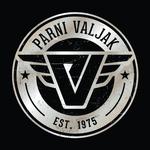
Parni Valjak
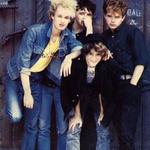
Plavi Orkestar
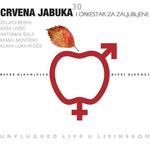
Crvena jabuka

Dino Merlin
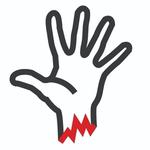
S.A.R.S.
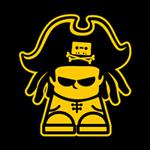
Dubioza kolektiv

Željko Bebek
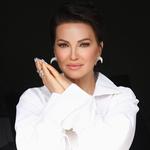
Nina Badrić
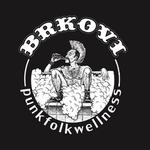
Brkovi
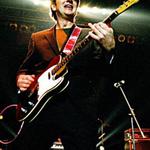
Bajaga & Instruktori
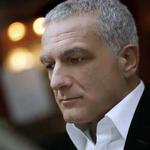
Željko Samardžić
Prljavo Kazalište Tour Cities
Frequently Asked Questions About Prljavo Kazalište
Concerts & Tour Date Information
Is Prljavo Kazalište on tour?
Yes, Prljavo Kazalište is currently on tour. If you’re interested in attending an upcoming
Prljavo Kazalište concert, make sure to grab your tickets in advance. The Prljavo Kazalište tour
is scheduled for 1 dates across 1 cities. Get
information on all upcoming tour dates and tickets for 2026-2027 with Hypebot.
How many upcoming tour dates is Prljavo Kazalište scheduled to play?
Prljavo Kazalište is scheduled to play 1 shows between 2026-2027. Buy
concert tickets to a nearby show through Hypebot.
When does the Prljavo Kazalište tour start?
Prljavo Kazalište’s tour starts Apr 25, 2026 and ends on Apr 25, 2026.
They will play 1 cities; their most recent concert was held in
Dietikon at Stadthalle Dietikon and their next upcoming concert
will be in at .